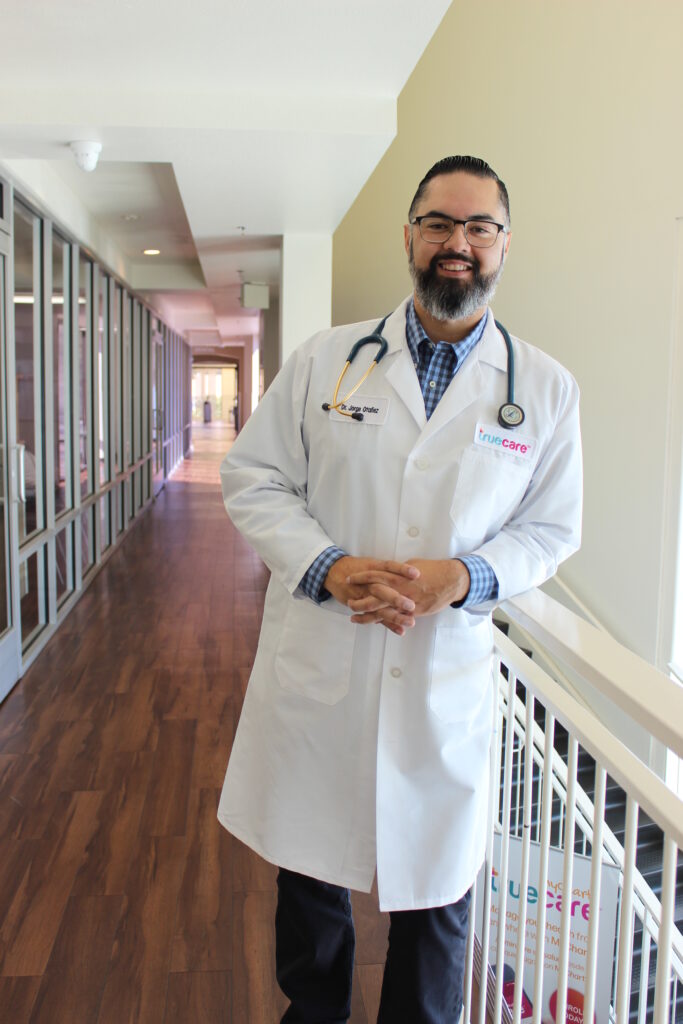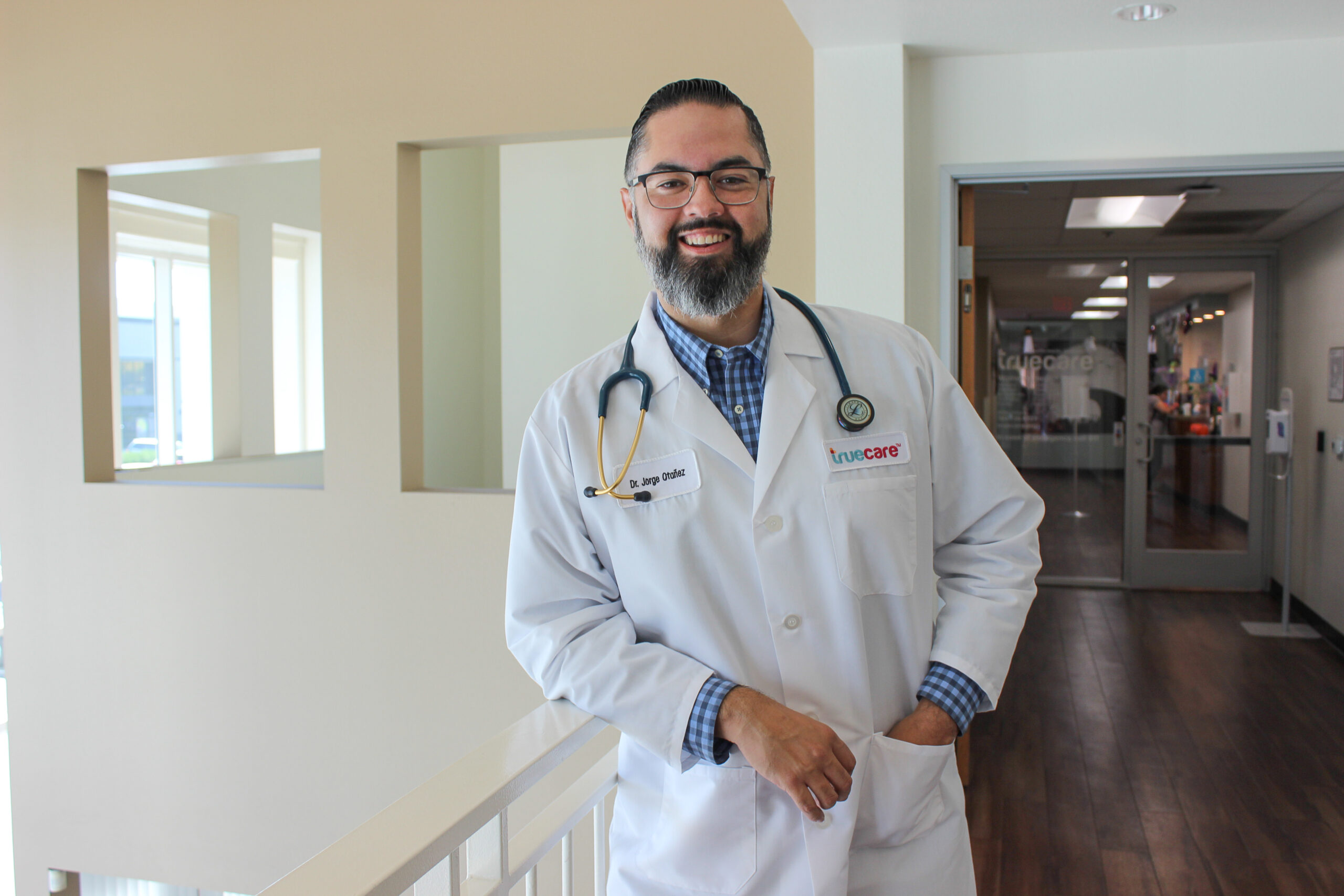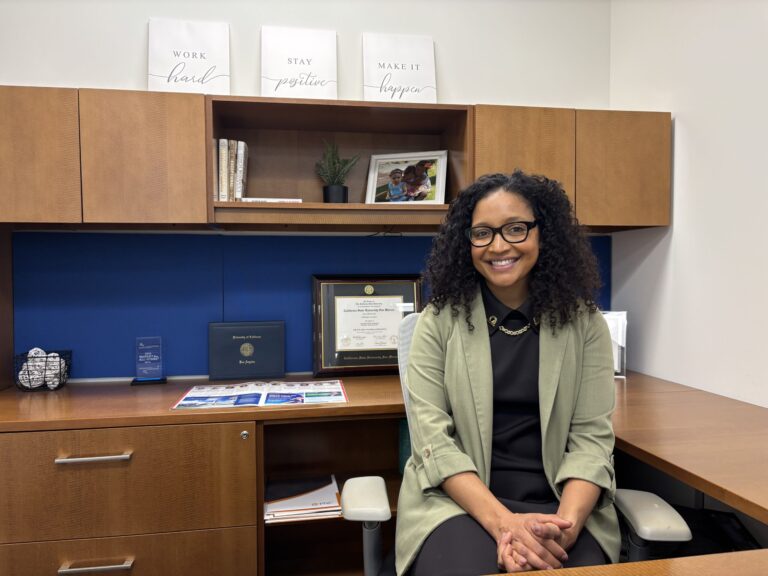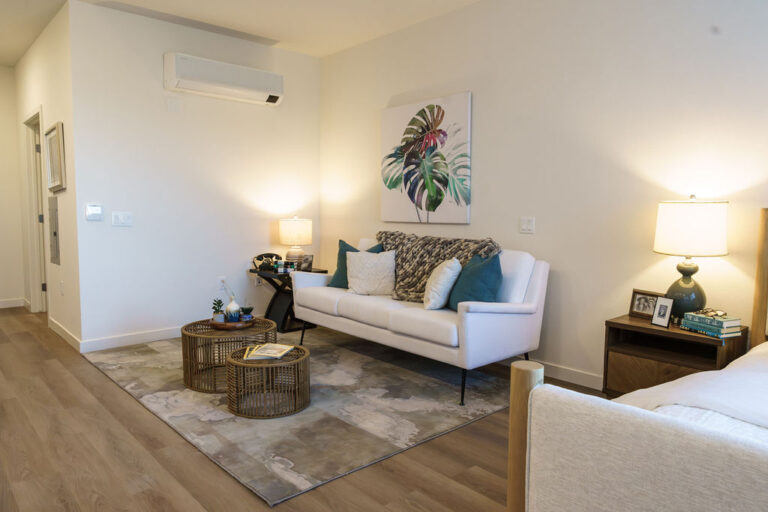Dr. Jorge Otañez, Associate Chief Medical Officer at TrueCare, Worked His Way to The Top in His Effort to Help Others
By Melanie Slone
“Healthcare has no ZIP codes.” Such is the mantra of Dr. Jorge Otañez, Associate Chief Medical Officer at TrueCare, where he practices family medicine and healthcare administration since July 2022.
The son of parents who both passed away young, Dr. Otañez says their illnesses in part pushed him to study medicine.
Dr. Jorge Otañez’s Activities
- Member, National Hispanic Medical Association (NHMA).
- Member, Southern California Academy of Family Physicians’ justice, equity, diversity, inclusion (JEDI) task force.
- UCSF leadership fellowship participant.
- Member, UCSD Flying Samaritans, providing medical care in Rosarito, Ensenada, and Tijuana.
- Mentoring through chat groups for medical students and residents.
The day his father passed in June 2003 is still fresh in his mind; a young Jorge walked out of the lobby at UCSD where his family was sitting, turned to an uncle, and said “I’m going to come back and work at this hospital.” That determination would get him to where he is today.
Born and raised in Tijuana by his maternal grandmother and aunts, Dr. Otañez and his brother—today a lawyer—lost their mother when Jorge was eight, and their father when he was 18.
The Goal: UCSD
As a medical student, Jorge Otañez’s dream was to be a pediatrician. He studied medicine in Tijuana and crossed the border to work three jobs in San Diego on the weekends—at Taco Bell, and at the Hotel del Coronado as both spa attendant and banquet server.
He remembers, “Friday afternoon, I would sit two hours to cross the border, waiting to come and work, and I was studying and reading [in line] because I couldn’t waste any time.”

All his effort paid off, and Jorge passed the national test to be a pediatrician in Mexico in 2010, moving into a pediatrics residency at a hospital in Mexicali. He then did a year of community service in Rosarito, where he says he felt out of place and frustrated with the training and the environment. “I said, this isn’t for me…I felt like the world just came crumbling down because a pediatrician is what I thought I wanted to be all along…”
Soon, he was accepted into a program at UCLA for bilingual international medical graduates who wanted to practice family medicine in the state of California. There, despite some resistance from people who believed getting a residency at UCSD was a just a pipedream, Jorge was set on his goal. He said, “I’ll call you when I get accepted to UCSD.”
Jorge is grateful for his wife’s support during his time in Pasadena. “She was working. She was helping me, which was important because I couldn’t have a job… you need to fully commit because it’s very difficult for international medical graduates to go through residency programs here in California.”
When he was ready to apply for his residency in 2015, he only had eyes for UCSD, remembering his vow from years before. “I made a promise to myself. I haven’t been [to UCSD] in 12 years—since my dad passed away…I called my uncle, and I said, remember 12 years ago when I said this? Well, I just got accepted. I’m going to start working [at UCSD] in a month or so…”
Community Health
Participants in the UCLA program take on a commitment to work two years with underserved communities in the state of California.
“I went to a community health center to finish residency,” he says, “and this is my life now. I don’t see myself doing anything else.”
Dr. Otañez worked at a health center in the North County for four years, where he took on leadership positions. His goal was to be a chief medical officer, so he could “affect change and continue to do patient care and sit at the table and actually do some work.”

Eventually, he saw that TrueCare had a posting for a position that interested him, so he applied, but he was hired for a different position, Associate Chief Medical Officer, thanks to his leadership skills and passion.
He is proud of the work TrueCare does with the community. “I just fell in love [with TrueCare],” he says. “I got myself two stethoscopes that resemble the colors, a teal one and a pink one… I go out and I have a jacket with the logo.”
Formerly known as North County Health Services, TrueCare has been in North County since 1971. “I noticed that there’s this presence… I became invested, and I really saw what they were doing out there in the community,” he says. “This is where I see myself for the rest of my career, caring for the type of patients that we do here.”
At TrueCare, Mimi Mateo is the director of Employee Wellness and Diversity, Equity & Inclusion, which Dr. Otañez says shows a true commitment to this need. Also, “over 70% of our patients are Hispanic,” he points out. “So, you want to make sure that you provide culturally pertinent care.”
With his two hats—as a physician and an administrator—Dr. Otañez believes TrueCare is a place he could bring his own family members as patients. “That’s how I treat my patients, how I would want my family members to be treated.”
No Borders in Medicine
Dr. Otañez believes culturally sensitive medicine means more than just speaking the language. “I consider myself someone who’s bilingual and bicultural. If I see a patient, I know exactly where they’re coming from. Sometimes I know their doctors. They go across the border…I have friends that I refer patients to.”
He also switches between English and Spanish for families with different language levels. “The way you express yourself can be very different,” in Spanish, he says.
When he speaks Spanish with these patients, he says, “You can see it in their eyes. They light up. ¿Habla español? And then, they start saying all the things they wouldn’t tell someone else.”
Dr. Otañez is also helping pave the way for Latinos who wish to go into primary care.

He tells us only 6% of physicians in the country are Latinos or Latinas, even though a large percentage of the population is Latinx. “We need a lot more Hispanics, not just physicians, but people in general in healthcare and people who understand and do it for the right reason—changing people’s lives and helping them prevent diseases.”
He encourages students interested in medicine not to give up. “You’re going to have a lot of people saying negative things…There’s no one in healthcare in my family…I never had anybody to look up to. I had no one to guide me.”
Yet, he made it to where he wanted to be, and now he says he is in a position to help others.
“If you’re doing it for the right reasons, don’t ever take no for an answer,” he tells students.
He also says a support system is essential, not only financially but in other ways. “If you want to do this, then you need people in your corner that are going to cheer you on.”
Healthcare has no ZIP codes
Dr. Otañez believes everyone has a right to the best care regardless of insurance, money, or where they live. “That’s the way I practice medicine…I don’t care where you’re coming from, where you’re going, what you’re doing.”
When he worked at a pharmacy in Mexico, he would often pay for his patients’ medications.
“I’m not doing this for the money. … I had to buy the medicine for them so they could actually take it. I saw a lot of patients and got a lot of experience.”
Today, he is a leader in making sure TrueCare continues to provide the best care for the community. As a doctor, he focuses on educating his patients, listening to them, and making sure to do a thorough exam. “That’s the basics of how I learned to practice medicine.”
He is also doing his part to break down barriers. “I want to give back. I want to help. And if I don’t have the answer, I point people in the right direction,” he says.
“I like to help people,” he says. “I love what I do. It’s very rewarding.”




